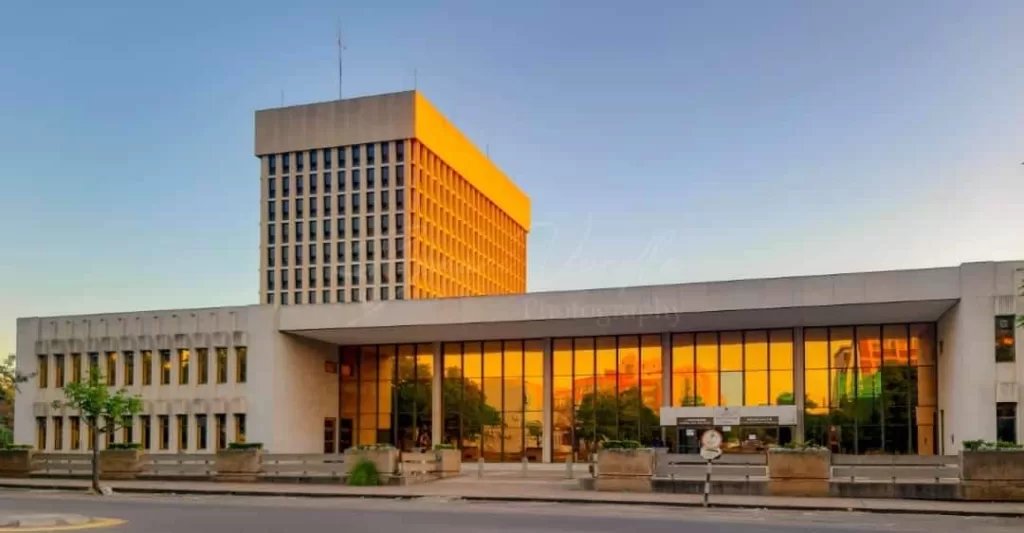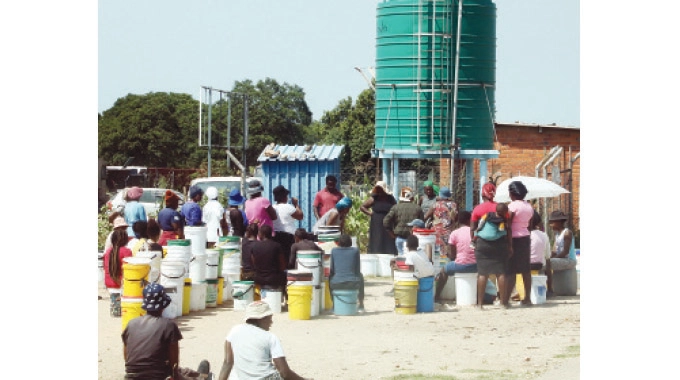BCC Tightens Water Shedding Programme and Reviews it to 120 Hours.
Bulawayo City Council has tightened water shedding programme introduced 120-hour water shedding program aimed at managing the available water resources more effectively and ensure equal distribution to residents.
In an effort to manage the water crisis facing the City of Bulawayo, Bulawayo Mayor Senator David Coltart announced the water shedding program and revealed the challenges leading to this programme during a press conference.
“Our residents have been experiencing serious water challenges over the past weeks, with some experiencing days of no running water and some experiencing weeks,” said Coltart.
He added, “This has now been made worse by the weather conditions that we are experiencing, which has brought us into very serious drought.”
The water shedding program will be implemented citywide, with the exception of the industrial and Central Business District areas. This decision was made to ensure the continuous operation of essential services and economic activities.

Delayed Rains
The pressing need for the water shedding program stems from several factors. One key factor is the delayed and reduced rainfall caused by the El Niño effect, a climate pattern that globally affects weather conditions. The lack of rainfall has led to lower water levels in the city’s reservoirs.
Furthermore, the city’s water supply dams are presently at a critically low level, with the main dam holding only 4.08% of its capacity.
Coltart revealed, “Our Engineering department has advised us that currently our dams are at 43,59 percent capacity. And somehow these figures are misleading because most of our water is being held at Insiza and Mtshabezi and we cannot draw sufficient quantities of water from those two dams because of the deficiencies in the pipeline.”
Power outages have further exacerbated the situation, resulting in diminished water reservoir levels. The decommissioning of the Umzingwane Dam, done on November 19, 2023, has also significantly reduced the city’s water supply.
“The dam typically contributes approximately 35ML/day to the city’s water supply,” the press release explained. “Its decommissioning will result in a reduction of the city’s abstraction volume.”

RELATED CONTENT: Bulawayo City Council Likely to Tighten Water Shedding Schedule
Unmet Supply & Demand
Adding to the complexity of the crisis is the fact that the average system input volume is only 100 million liters per day, while the demand is approximately 120 million liters per day. This means that the water supply cannot meet the demand, exacerbating the shortage further.
“We understand that this will be challenging for residents, but it is necessary to ensure the continued availability of water,” explained the Mayor of Bulawayo.
He emphasized that the program is subject to change based on the raw water reservoir level.
The mayor also stated that the decision was made during a Special Council meeting held on December 14, where various resolutions were reached. These included engaging with relevant government ministries to declare Bulawayo a water shortage area, procuring new bowsers to alleviate the crisis, and intensifying efforts to resuscitate existing boreholes and water kiosks. Additionally, a Water Crisis committee will be reactivated to oversee the situation.
RELATED CONTENT: Bulawayo’s Currency Woes: Residents Demand Better Services
High Alert
“The City of Bulawayo remains on high alert for cholera and other waterborne diseases or diseases caused by a lack of water,” stated the press release. As a precautionary measure, plans are also underway to resuscitate the Umzingwane Booster Pump Station.
Residents of Bulawayo are advised to prepare for the water shedding program and take necessary measures to conserve water during this period. The City authorities will continue to monitor the situation closely and provide updates to the residents as necessary.
It is recommended that residents stay informed through official channels such as the City of Bulawayo’s website, social media platforms, or local news outlets for any further updates or changes to the water shedding program.
Lastly, the water crisis in Bulawayo underscores the urgent need for investments in water infrastructure and sustainable water management.
#News in Bulawayo #News in Zimbabwe Artist Arts BCC Bulawayo Bulawayo City Council Bulawayo Drugs Bulawayo economy Bulawayo industry Bulawayo news Bulawayo Police Bulawayo Water Bulawayo Water Crisis Bulawayo Women entrepreneurship Business Women Community Culture Currency Drug Abuse Drugs Economy Farmer Farmers Farming Informal Sector Informal Traders MSMEs Music News in Bulawayo News in Zimbabwe Police Police in Bulawayo Vendor Vendors water Water Crisis Water Shortage water supply issue Women entrepreneurship ZESA Zimbabwean economy Zimbabwe news Zimbabwe water crisis ZITF ZRP
Our stories told by us!
Join us for all News in Bulawayo and Bulawayo News in Zimbabwe.










